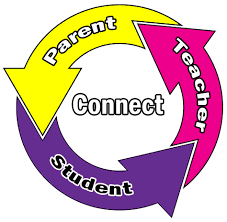EDUCATIONAL REFORM Part II: How Intrusive Parenting Styles Fuel the Teacher Shortage Crisis
National teacher shortage is due to a dominating hostile work environment, created by the very people educators serve.
Tara Parker-Pope, writer for The New York Times, highlights the critical issue of teacher burnout amid the high levels of teacher turnover in American schools. As baby boomers retire and new educators exit the profession, the National Commission on Teaching and America's Future reports that nearly a third of new teachers leave within their first three years, with almost half departing by the fifth year. Teacher trauma is real.
After spending nine drama and trauma-filled years at my last school assignment, I walked into the principal’s office for my end-of-year evaluation on April 25, 2017, expecting a routine meeting. To my surprise, my otherwise successful teaching career came to a sudden and unexpected end, partly due to a small group of parents who had voiced complaints. With 136 students enrolled in my choir program that year, I thought a "handful of complaints" was a minor issue in an otherwise great year. But my administrator saw it differently. After 46 years in education, I was met with a simple, "Don't let the door hit you on the way out." I am thankful for that event as it motivated me to write, blog, and podcast on behalf of our nation’s teachers and the victimization of America’s children due to a failing education system. In 2019, my book Rescue the Teacher, Save the Child! was published, and my new journey as a teacher-child advocate began.
After reading my book, one reviewer wrote: Wow – what a valuable addition to what I would call practical solutions. I have empathy for [Paula Baack] and what she went through at the end of her career. It is amazing how one or two people can end an amazing career that has been dedicated to the children of America and in helping them become successful, dedicated, caring, peace loving citizens of our great country. As I reflect back on my years as an educator, her career so parallels that of a coach as she and her students were so visible and subject to the whims of parents, administrators, and the public.
The whims of parents and administrators are also very real. I am a parent and a grandparent. In all the years our son attended public schools and a university, I never resorted to the kind of attacks I received as an educator. Never. Not all of our son’s teachers conducted themselves professionally. But I respected them as colleagues and chose not to chastise them privately or publicly. What is going on with today’s parents? Let’s define those parents and let us also address the tools they use to spew their vitriol.
HELICOPTER PARENTS: Some parents simply cannot accept the idea of their child failing. They position themselves on committees, boards, and advisory roles, hovering constantly to ensure their child is given every possible chance to succeed. This often means pressuring teachers to place their child in the top academic group, give them the lead in the school play, assign them to the most advanced choir, or put them on the best sports team. As a choral director, I dealt with those parents on a daily, sometimes hourly, basis. Because they volunteered at the school, they didn’t need to schedule meetings like other parents to voice their concerns—they were always there. If I turned around too quickly in my classroom, I’d bump into them! At best, the administration was ineffective at managing them, and at worst, the administrators were completely intimidated by these parent’s influence.
LAWN-MOWER PARENTS: This is the 21st-century evolution of parenting. In short, if their child doesn’t get what they want, these parents will bulldoze anyone in their way. When dealing with this new provocative way of parenting, working with helicopter parents appeared almost manageable. Lawn-mower parents directly contributed to the abrupt end of my career. They see their child as faultless, and they believe that teachers are the primary obstacle to their child’s success. When their child struggles, instead of sitting down for a constructive face-to-face conversation, they hide behind screens, launching harsh attacks at teachers. The result is devastating. These relentless assaults often leave teachers emotionally crushed and more than ready to depart the profession.
IN ABSENTIA PARENTS: It might be tempting to label these parents as the easiest to work with, mainly because they seem indifferent to their child’s education. One evening, after a concert, one of my singers mentioned she didn’t have a ride home. I asked why her parents hadn’t attended the concert, and she responded that they simply don’t enjoy performances. I ended up giving her a ride, only to find both parents sitting at home, watching TV. They couldn’t even make time to pick up their daughter after the event. While these parents are rarely a source of direct problems, their lack of involvement and attention doesn’t help foster a well-rounded, high-achieving child. Perhaps it could be said that in absentia parents are directly responsible for the downward spiral of American education. They just don’t appear to care.
To be clear, the vast majority of parents are thoughtful, kind, and supportive in their interactions with teachers. A better term: the silent majority. Unfortunately, it’s the few who create the most stress and challenges for educators. And in the end, it’s these challenges that drive many teachers to leave a profession they once felt called to serve.
How do you handle these types of parents? Can you manage it on your own? The key factor in navigating parent interactions is the school’s administration. Can they shield their staff from parents with distorted perspectives? When it comes down to it, will they stand by the teacher or side with the parent? These are important questions to consider. I believe the most important question, however, is whether the administration can shield teachers from the most common tool used by parents to attack their child’s teacher.? What is that tool? The easy access to venting via email.
PARENTS AND THEIR EMAILS: HRS SYNDROME
HIDE behind your computer. RANT paragraphs on your entitlement to privilege and hit SEND!
The most glaring issue with today's parents can be summed up as follows: how dare any teacher question my child's behavior or learning? Here's a typical pattern:
My child is flawless.
The teacher suggests otherwise, which feels like a personal attack.
Cue the frantic search for a computer, followed by a heated rant that’s sent off—starting the nightmare for any teacher who dared challenge the child's abilities.
These angry messages usually hit the teacher’s inbox just before the school day starts.
With no time to respond during lessons, the teacher spends the day carrying the weight of the accusation, knowing the parent believes their child can do no wrong and that the administration will probably be neutral at best and unsupportive at worst.
The pattern above suggests a teacher working in isolation. Where is the advocate? The intermediary? The leader? Part III will delve more deeply into the role of the administrator, but it’s worth mentioning here: administrators could stand to be more effective if they showed some backbone!
SOLUTIONS
Here are some steps teachers can take even in the absence of strong administrative support.
First, communicate your goals and policies clearly at the start of the school year. Set boundaries and don’t allow parents to dictate curriculum or classroom management.
Keep your administrator informed about any complaints or concerns you’re receiving. No principal wants to be blindsided by an irate parent’s phone call.
Document everything. When you’re tempted to skip recording yet another demeaning message from a parent, do it anyway. The best documentation is straightforward: just the date, time, and facts—no defense or justification needed.
Avoid communicating with an angry parent via email. They are not interested in your point of view. Insist on an in-person meeting with an administrator present to ensure a productive, neutral conversation.
Finally, while education associations and unions have often been criticized for their political leanings, I can attest to their value. As a member of two states’ associations, I was grateful for their support when I found myself unfairly targeted by angry parents.
TUNE IN. A sneak peek into Part III: Do good administrators exist? Over my 46-year career, I’ve worked with 21 principals and department chairs. Only two were able to effectively support and, when needed, defend me.





